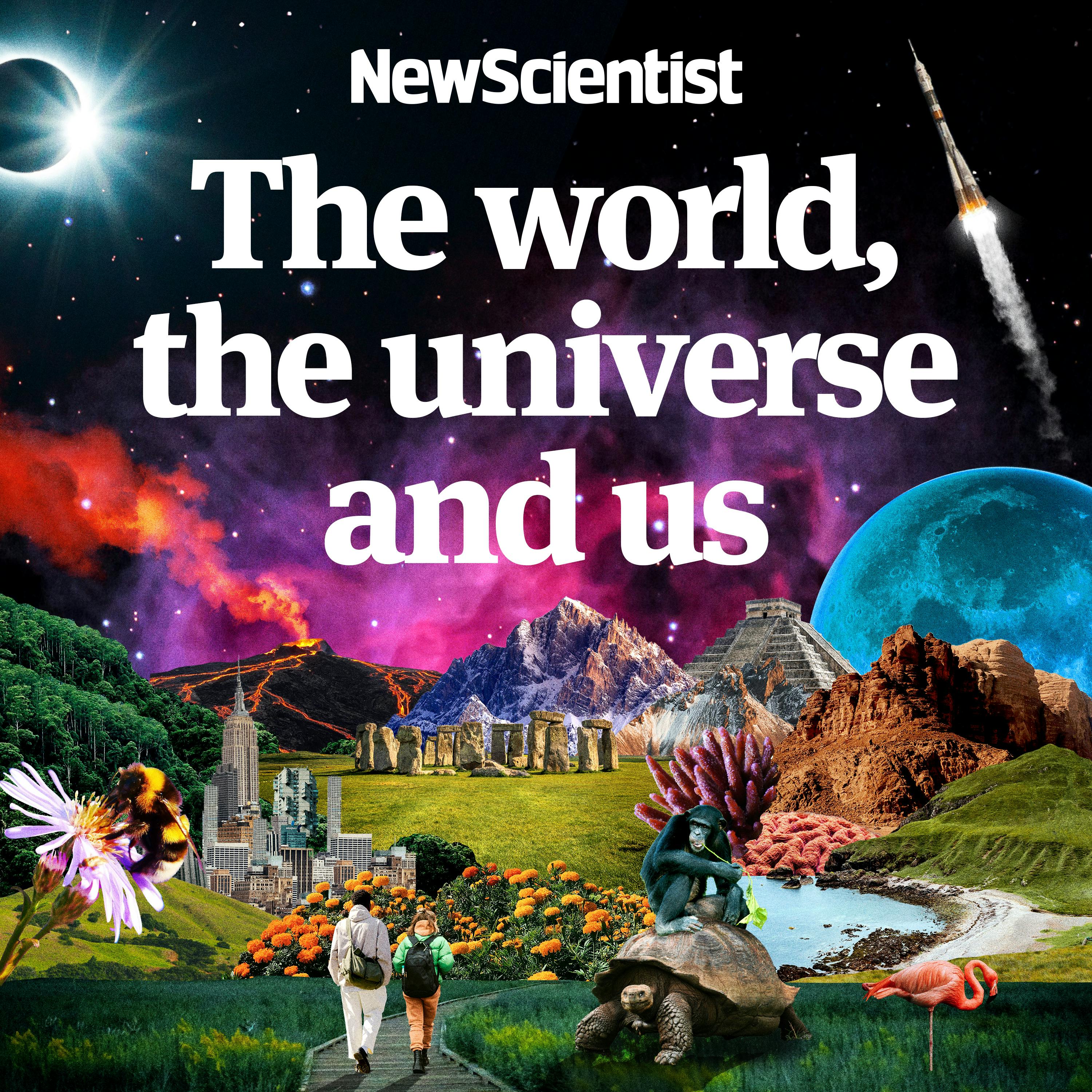

The world, the universe and us
New Scientist
From the evolution of intelligent life, to the mysteries of consciousness; from the threat of the climate crisis to the search for dark matter, The world, the universe and us is your essential weekly dose of science and wonder in an uncertain world. Hosted by journalists Dr Rowan Hooper and Dr Penny Sarchet and joined each week by expert scientists in the field, the show draws on New Scientist’s unparalleled depth of reporting to put the stories that matter into context. Feed your curiosity with the podcast that will restore your sense of optimism and nourish your brain.For more visit newscientist.com/podcasts
Episodes
Mentioned books

6 snips
Oct 13, 2023 • 34min
Weekly: Most detailed map ever of the human brain; clash of the ice planets; are US spies weakening encryption for everyone?
A detailed map of the human brain has been unveiled, revealing its specialized and organized structure. Two distant icy planets colliding has been pinpointed for the first time, reshaping our understanding of star systems. The National Security Agency may be weakening future encryption standards, raising concerns about online security. Earth's inner core is surprisingly soft, resembling clay or rubber. Laser technology is being explored to construct roads on the Moon, and the winner of the Fat Bear Week competition is announced.

Oct 10, 2023 • 25min
Dead Planets Society: #7 Halve the Moon
Leah and Chelsea discuss the idea of destroying the moon with astrophysicist Jonathan McDowell and Haym Benaroya. They explore methods such as splitting it with lasers, explosives, and space tugs, and discuss the consequences of having moon fragments orbiting Earth. They also explore the impact of having two moons on tides and the visual aesthetics of the night sky.

Oct 6, 2023 • 38min
Weekly: Big Nobels for tiny science; how Earth might make water on the Moon; the head-scratching mathematics behind your favourite puzzles
Rob Eastaway, the man behind New Scientist's puzzles, shares a tricky clock-based puzzle from his new book 'Headscratchers'. The podcast also discusses the carbon footprint of satellite internet services, the creation of water on the Moon, the issue of sex-testing unhatched chicks, and the inefficiency of hippos' chewing. Plus, an introduction to Fat Bear Week where Alaskan brown bears compete to gain the most weight before hibernation.

Oct 2, 2023 • 30min
CultureLab: Surviving the climate crisis – Michael Mann’s hopeful lessons from Earth’s deep history
Michael Mann, University of Pennsylvania climate scientist and activist, discusses how past climate events can teach us about our future and emphasizes the urgency of taking action to prevent further climate damage. Topics include extreme weather events in 2023, embracing uncertainty when discussing climate change, the Paleocene-Eocene Thermal Maximum (PETM), the impacts of climate change throughout Earth's history, and insights from the paleoclimate record.

Sep 29, 2023 • 28min
Weekly: Antimatter falls down; Virtual healthcare comes with a price; What’s causing Europe’s insect apocalypse?
Scientists at CERN study antimatter's behavior under gravity, finding results consistent with Einstein's predictions. Telehealth startups offer convenience but may come at a price. Europe's insect decline may be influenced by weather. Crocodiles can moo too. Carrot colors and genes behind orange pigment are discussed.

Sep 25, 2023 • 24min
Dead Planets Society: #6 Make Venus Earth Again
Paul Byrne, planetary scientist at Washington University in St. Louis, joins Chelsea and Leah to discuss transforming Venus into a habitable planet. They explore options such as removing Venus' atmosphere, changing its orbital speed, and moving it to Lagrange points. The speakers also discuss the challenges and benefits of turning Venus into Earth and transporting Saturn's rings to our planet.

Sep 22, 2023 • 29min
Weekly: First ever RNA from an extinct animal; big news about small solar system objects; “brainless” jellyfish can still learn
Thylacines, extinct carnivorous marsupials from the early 20th century, have had their RNA extracted for the first time. The hard problem of consciousness is discussed, with Integrated Information Theory coming under scrutiny. The Kuiper Belt objects Eris and Makemake may have liquid water, challenging previous assumptions. Caribbean box jellyfish with no brains can still learn, possibly through their eye-like structures.

Sep 18, 2023 • 26min
CultureLab: Real Life Supervillains - John Scalzi on the science of volcano lairs and sentient dolphin minions
John Scalzi, an American science fiction author, discusses the science behind villainous tropes like volcano lairs and genetically engineered dolphins in his book 'Starter Villain'. He humorously pokes holes in the flawed logic seen on TV shows and explains what an evil mastermind would look like in the real world. They also explore the illusory nature of billionaire wealth and the limitations of defining intelligence based on human capabilities.

Sep 15, 2023 • 32min
Weekly: Science that makes you laugh (and think); black holes behaving badly; drumming cockatoos
Ig Nobel Prizes honor achievements that make people laugh and think, including a smart toilet analyzing poop and people fluent in speaking backwards. Winter brings updated versions of the covid-19 vaccine. James Webb Space Telescope spots ancient supermassive black holes. Palm cockatoos demonstrate unique musical abilities. Cockatoos' intelligence and frogs' amusing mating behavior are discussed.

Sep 11, 2023 • 25min
Dead Planets Society: #5 The Return of Pluto
Join Leah and Chelsea as they belatedly mourn the loss of Pluto as a planet. Guests Kathryn Volk and Konstantin Batygin discuss various approaches to boosting Pluto's status, including increasing its mass and dragging it into the inner solar system. They also explore reimagining Pluto's planetary status by dropping a black hole inside it or physically moving it. The podcast also touches on the stability of Pluto and the potential consequences of a close gravitational encounter with Neptune.


